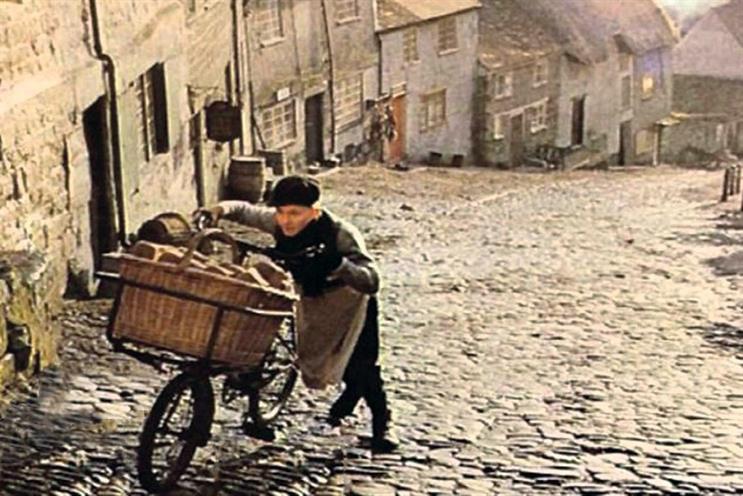British bread-maker Hovis’ decision to remaster and rerun the famous "Boy on the bike" ad (which first aired in 1973) must certainly frustrate the new generation of creatives.
Is this a desperate act of nostalgia? An appeal to a golden age in an effort to soothe anxieties resulting from Brexit, trade wars, climate change and a general sense that all is not right? Or is it a simple lack of creativity?
The remastering of the original ad and the backstory involving Sir Ridley Scott, the British Film Institute and the Ashington Colliery Band seem to suggest more is going on here than first meets the eye.
On one level, rerunning "Boy on the bike" is a classic authenticity play.
Hovis is a brand with more than 130 years' heritage, yet the category it operates in – supermarket mass-produced bread – hardly oozes hipster credibility or suggests passionate bakers lovingly kneading sourdough for hours before selling hand-shaped loaves at the local farmer’s market. Frankly, the category is a bit dull when compared with the alternatives – something that diminishes a brand of Hovis’ stature.
Emphasising that Hovis’ passion for great bread remains undiminished is one way of showing the brand has remained true regardless of the fickleness of fashion.
On another level, rerunning the ad is a nostalgia play, with a cultural twist.
Brands have long drawn people together, cut across class and politics and – in the case of the oldest, most iconic and often more "everyday" brands – reflected a sense of collective identity, saying something about who we are as members of a nation.
Cultural brand strategies provide mythical solutions in troubled times. They help us reconnect with the national story or, in this case, rebuild one.
It’s not uncommon for people experiencing recent political upheaval to ask: "Is this my country any more?"
We’ve seen it following the Brexit vote, the success of Donald Trump and, more recently, in Australia, in which Labour lost the "unlosable" election.
In going back to its heritage, Hovis is saying it is more than just a brand of bread; it is a British institution.
With even the queen calling for more goodwill, less tribalism and an embracing of what unites us as an antidote to the acrimonious them-versus-us shouting that occurs in the newspapers and online, a brand like Hovis has power because it is mundane.
Bread unites people. Hovis, in rerunning the ad, seeks to remind us of where we came from and what we all share in common. And, being a brand, it cuts across divides, precisely because it is apolitical.
So, what next for Hovis? That depends on its intent.
Hovis marketing director Jeremy Gibson spent a lot of time talking about the continued tradition of Hovis when deciding to rerun "Boy on the bike", but less about strategic motives (which in itself is straight out of the authenticity playbook).
If he’s targeting those who yearn for the past, then that in itself is a large market and one that is feeling as out of place and ignored as those who wish to look to the future.
If the intent is to enhance the brand image of Hovis, then a follow-up range of "craft-focused" brand extensions is needed.
If it is the first step in healing divides, then drawing inspiration from Kraft’s "How do you love your Vegemite" campaign in Australia is worth considering.
In the retro spirit of nothing is truly new, a multichannel "How do you love your Hovis?" campaign would put the spotlight on the everyday rituals we share around a near-universal love of bread.
Are the dangers to all this?
Assuming this isn’t just a tired retread of one of the greatest campaigns of all time, cultural brand campaigns may help us imagine ourselves as part of a national whole.
No amount of shared love for bread will withstand arguments about who voted for leave or remain around the communal table. But it might help just a little in starting a conversation about what unites us.
Michael Beverland is head of strategy and marketing at the University of Sussex Business School. He is the author of Building Brand Authenticity: 7 Habits of Iconic Brands and Brand Management: Co-creating Meaningful Brands (Sage, 2018)


